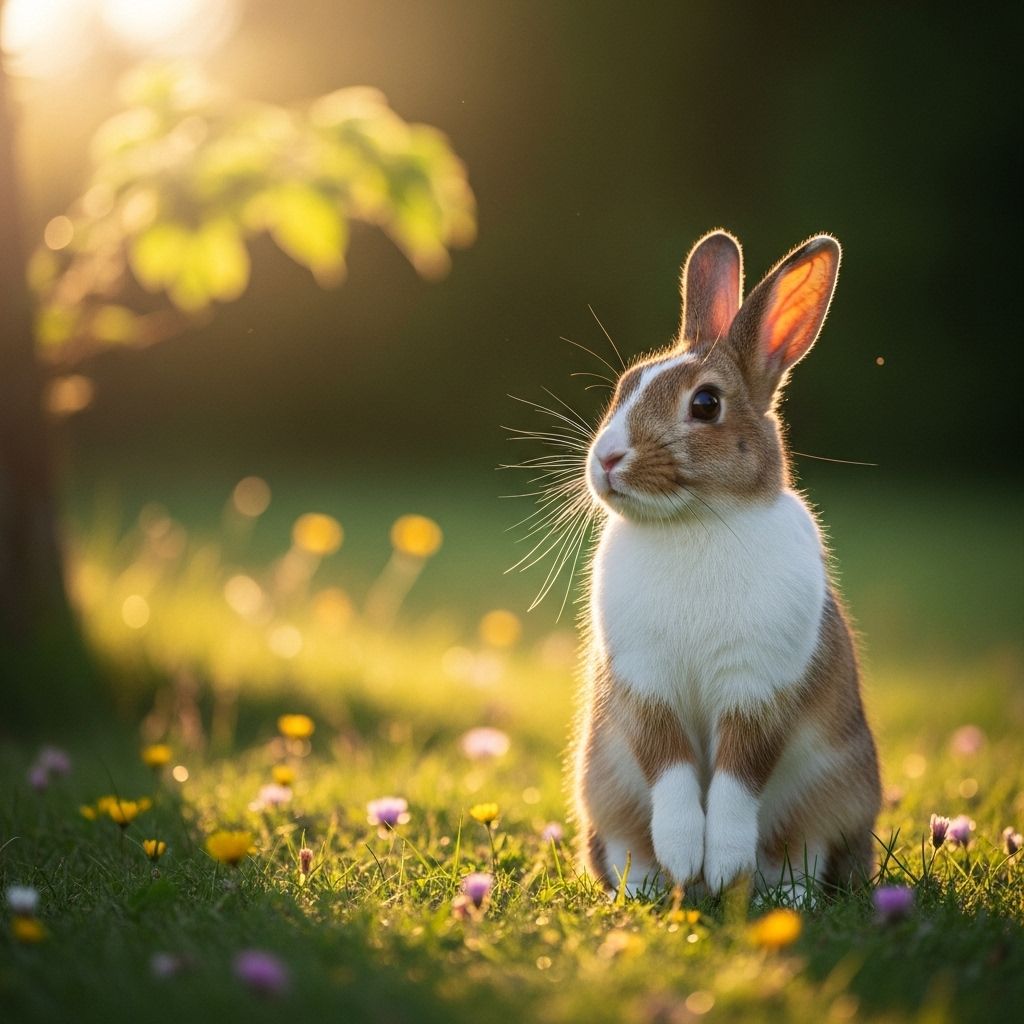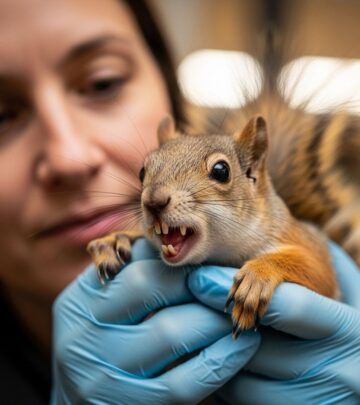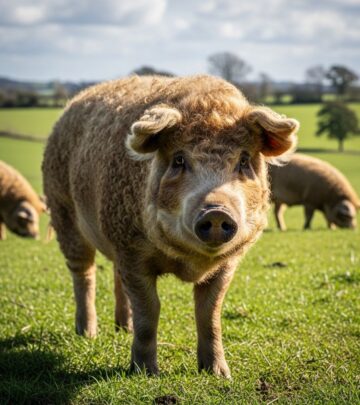How Long Do Rabbits Live? Lifespan, Care, and Essential Tips
Balanced diet, enrichment, and vet care pave the way for years of joyful companionship.

How Long Do Rabbits Live?
Rabbits are cherished pets known for their gentle nature and lively personalities. If you’re considering adding a rabbit to your family or want to maximize the life of a bunny already in your care, understanding their lifespan and the factors that impact it is essential. The average pet rabbit’s lifespan differs dramatically from that of wild rabbits due to environment, care, and other influences. This comprehensive guide delves into how long rabbits live, what affects their longevity, and actionable ways to ensure your furry companion enjoys a long, happy, and healthy life.
Rabbit Lifespan: Domestic vs. Wild
| Type | Average Lifespan |
|---|---|
| Domestic rabbit | 8–12 years (with proper care) |
| Wild rabbit | 1–9 years (often shorter due to predators) |
Wild rabbits have significantly shorter lifespans than domestic rabbits. Living in the wild exposes them to predators, environmental stressors, disease, and weather extremes, which increase their risk of early mortality. Conversely, pet rabbits benefit from protected environments, regular feeding, veterinary oversight, and human companionship, contributing to their longer lives.
Breed, Size, and Lifespan Variations
- Small breeds (e.g., Netherland Dwarf, Lionhead, Mini Lop): Typically live 8–12 years, with some individuals reaching up to 14 years.
- Large breeds (e.g., Flemish Giant): Average lifespan of 4–6 years. Larger rabbits may develop arthritis and mobility issues as they age.
- Breed-specific risks: Dwarf breeds are more prone to dental or tear duct issues, while some fancy breeds may require specialized care.
Breed and size are important predictors of how long your rabbit will live. Smaller breeds tend to outlive larger breeds, though genetics and individual health also play significant roles.
Key Factors Affecting Rabbit Longevity
To maximize your rabbit’s lifespan, it’s vital to understand the main factors at play:
- Spaying and Neutering: Female rabbits that are not spayed face a higher risk of developing uterine cancer, which can dramatically shorten life expectancy. Spaying and neutering not only prevent reproductive-related diseases but also contribute to better behavior and reduced stress.
- Diet: Providing a balanced diet rich in fiber, especially hay, helps maintain good digestive, dental, and overall health. A poor diet can quickly lead to obesity, gastrointestinal issues, or dental disease.
- Husbandry and Habitat: Clean, spacious enclosures with plenty of room to exercise help avoid joint problems and keep your rabbit physically and mentally stimulated.
- Veterinary Care: Regular checkups, vaccinations, parasite prevention, and prompt medical attention for sickness all contribute to a longer, healthier life.
- Handling Stress: Rabbits are prey animals, and chronic stress can weaken their immune system. Provide gentle, predictable care and shelter from loud noises, sudden movements, or intimidating pets.
- Genetics: Some hereditary conditions may still affect longevity despite excellent care. Always research a breed’s specific tendencies if adopting a rabbit.
Common Health Issues That Affect Rabbit Lifespan
- Dental disease: Particularly common in dwarf or lop breeds due to jaw conformation. Signs include drooling, reduced appetite, or facial swelling.
- Gastrointestinal stasis: Obstruction or slowdown of the digestive tract; can be life-threatening if untreated.
- Arthritis and mobility issues: Larger breeds may suffer earlier onset of these issues.
- Respiratory infections: Bunnies are susceptible to pneumonia and other diseases if kept in damp, dusty, or unsanitary conditions.
- Cancer: Unspayed females are at highest risk for uterine cancer.
- Parasites: Regular cleaning and veterinary care help minimize risk.
Vigilance in observing your rabbit’s health, as well as prompt veterinary care, can minimize the impact of many age-related and preventable diseases. Early detection is crucial to increasing your rabbit’s chances of living longer.
7 Tips to Increase Your Bunny’s Lifespan
- 1. Provide a balanced and high-fiber diet: Unlimited access to hay, supplemented with fresh greens and a controlled amount of pellets.
- 2. Ensure regular veterinary care: Schedule annual checkups, vaccinations, and discuss spaying/neutering.
- 3. Create a safe, clean living environment: Spacious exercise areas, secure housing, and regular cleaning.
- 4. Encourage socialization and gentle handling: Rabbits thrive on companionship but must be handled gently to avoid stress and injury.
- 5. Stimulate with toys and enrichment: Chew toys, tunnels, and puzzle feeders keep your rabbit mentally stimulated.
- 6. Monitor for signs of illness: Watch for behavioral changes, reduced appetite, or altered grooming habits.
- 7. Neuter or spay your rabbit: Reduces risk of reproductive cancers and aggressive behaviors.
How to Recognize Signs of Aging in Rabbits
- Reduced activity: Older rabbits tend to rest more and may not move as energetically.
- Arthritis or stiffness: Large breeds, in particular, may show lameness or difficulty hopping.
- Weight changes: Both weight gain (due to inactivity) and weight loss (due to illness or dental disease) signal aging.
- Slower grooming: Senior rabbits may have difficulty reaching all areas to keep their fur clean.
- Change in appetite: Often a clue to underlying health problems.
If you observe these signs, consult your veterinarian; early intervention can greatly improve quality of life for aging rabbits.
Best Care Practices for a Long-Lived Bunny
- Companionship: Rabbits are social animals. Consider keeping pairs or small groups, provided they are matched appropriately and neutered to avoid fighting or unwanted pregnancies.
- Safe indoor housing: Protects against predators, extreme weather, and disease.
- Frequent grooming: Especially needed for long-haired breeds. Prevents fur matting and helps monitor for skin issues.
- Dental checks: Dwarfs and lops need regular dental exams due to increased risk of malocclusion (misaligned teeth).
- Enrichment and exercise: Daily playtime outside their enclosure for at least several hours.
Why Wild Rabbits Live Shorter Lives
- Constant threat from predators (e.g., foxes, birds of prey, domestic pets).
- Exposure to disease, parasites, and environmental stress.
- Lack of consistent food, water, or shelter.
- Natural hazards like weather extremes and habitat destruction.
While wild rabbits can sometimes reach up to nine years, most do not survive beyond a few years because of these inescapable challenges.
Common Myths About Rabbit Lifespan
- Myth: All rabbits live short lives.
Fact: Pet rabbits often live 8–12 years with proper care. - Myth: Breed doesn’t affect lifespan.
Fact: Smaller breeds usually outlive larger ones; genetics and health history also matter. - Myth: Rabbits don’t need veterinary attention.
Fact: Vet care is essential for spotting and treating issues early.
Rabbit Breed Lifespan Comparison Table
| Breed | Average Lifespan |
|---|---|
| Netherland Dwarf | 10–12 years |
| Lionhead | 8–12 years |
| Mini Lop | 10–14 years |
| Angora | 7–11 years |
| Flemish Giant | 4–6 years |
| Rex | 5–10 years |
This table demonstrates that breed, genetics, and size all contribute to the varied lifespans possible in pet rabbits.
Frequently Asked Questions (FAQs)
Q: Do rabbits live longer if kept inside?
A: Yes. Indoor rabbits are protected from predators, extreme weather, and many diseases, contributing to a longer life expectancy.
Q: Is it true female rabbits should always be spayed?
A: Yes. Spaying prevents uterine cancer and can add years to a female rabbit’s life.
Q: How can I tell if my rabbit is getting old?
A: Signs of aging include reduced activity, stiffness, changes in appetite, slower grooming, and weight fluctuations.
Q: Can dwarf rabbits live longer than other breeds?
A: Generally, yes. Dwarf breeds often reach 8–12 years and sometimes longer, though they may need extra dental care.
Q: What are the main causes of early death in pet rabbits?
A: Untreated illnesses, poor husbandry, lack of veterinary attention, and reproductive cancers are common causes.
Find Support and Learn More
For more in-depth advice on rabbit health, behavior, and care, consult your veterinarian or reach out to local rabbit rescue organizations. These groups offer guidance about breed-specific needs, habitat design, nutrition, and enrichment that can dramatically improve your bunny’s quality of life.
Final Thoughts on Rabbit Lifespan
Rabbits, with attentive care and proactive health management, can be long-lived and joyful pets. Remember, every rabbit is unique—by honoring both their physical needs and emotional wellbeing, you set the foundation for a lifetime of companionship. The combination of nutrition, veterinary care, environment, and loving attention will ensure your bunny thrives for years to come.
References
Read full bio of Anjali Sayee












